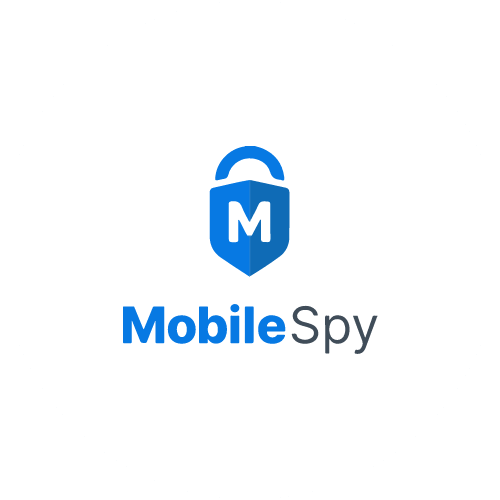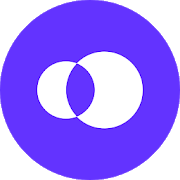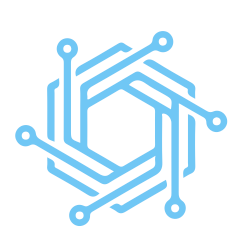Most call monitoring software may be accessed from numerous devices and platforms. These software packages are usually web-based or cloud-based, so users may access them from any device with an internet connection. This covers computers, desktops, tablets, and cellphones. Furthermore, many call monitoring software packages include mobile apps, making it simple to view and manage call data while on the go. This flexibility enables organizations to monitor their calls from any place, making it a practical and efficient alternative for enterprises of all sizes.
List of Best Call Monitoring Software
WINHMS Enterprise solution for managing high-end hotels and large chains. This advanced software offers a wide range of features to efficiently handle all hotel operations, such as reservations, sales, inventory, and payroll. With its comprehensive p...Read More WINHMS Enterprise
CallFinder, the affordable speech analytics solution for your company. Unlock valuable insights by capturing and analyzing the voice of your customers. Implement effective call monitoring practices and eliminate deficiencies in call handling to enhan...Read More CallFinder
Experience the leading cloud-based call center software with Talkdesk. Our innovative platform raises the standard for customer and agent interactions, providing top-of-the-line performance. Boost efficiency and streamline workflows with our advanced...Read More Talkdesk
Telzio is a complete phone solution crafted specifically for small businesses and enterprises. It harnesses the power of the internet to provide a vast range of professional features, ideal for fulfilling your communication requirements. Featuring a...Read More Telzio
EvaluAgent is a leading Quality Assurance software that harnesses the power of AI and automation to improve customer service interactions. Through real-time feedback, interactive training, and insightful analytics, EvaluAgent empowers agents to consi...Read More EvaluAgent
MobileSpy is a tool for complete control and monitoring. With our remote application, you can easily track and monitor social media, multimedia, SMS, call logs, internet usage, and GPS location of any target device. Stay informed and in control from...Read More MobileSpy
Runo is a Call Management CRM that will transform your telecalling procedures. Experience a remarkable 70% contact ratio and double your sales conversions in just 30 days. With SIM-based call management, auto-dialing capabilities, and live analytics,...Read More Runo
800.com is a virtual phone number platform designed to simplify all your communication needs. Our robust toll-free numbers and advanced tools make it effortless to connect with your audience and foster strong relationships. Say goodbye to communicati...Read More 800.com
Aspect Quality Management is asoftware that revolutionizes call center performance with its cutting-edge monitoring, evaluation, and feedback features. Elevate your customer interactions, boost agent productivity, and increase satisfaction with our c...Read More Aspect Quality Management
CallMonitor is a call monitoring solution crafted for the needs of business owners, managers, and supervisors. Take advantage of features like call history, logs, and recordings to effortlessly monitor live calls. With seamless call management, stay...Read More CallMonitor
GoToConnect is a call monitoring solution for all your business needs. With cutting-edge features like call spy, call whisper, and presence monitoring, GoToConnect provides an unmatched monitoring experience. Backed by state-of-the-art AI technology...Read More GoToConnect
OpenPhone is a phone software perfect for businesses of all sizes. Designed specifically for web apps, our platform offers a comprehensive range of features including Call Monitoring, Mobile Access, Call Recording, Call Management, and IVR/Voice Reco...Read More OpenPhone
FreeCallTracking AI is a call tracking solution for monitoring and analyzing inbound calls from your digital and marketing efforts. With advanced features like real-time tracking, recording, and keyword-level tracking, as well as dynamic number inser...Read More FreeCallTracking AI
Learn More About Call Monitoring Software
- What Is Call Monitoring Software?
- What Are The Recent Trends In Call Monitoring Software?
- Benefits Of Using Call Monitoring Software
- Important Factors To Consider While Purchasing Call Monitoring Software?
- What Are The Key Features To Look For In Call Monitoring Software?
- Why Do Businesses Need Call Monitoring Software?
- How Much Time Is Required To Implement Call Monitoring Software?
- What Is The Level Of Customization Available In Call Monitoring Software?
- Which Industries Can Benefit The Most From Call Monitoring Software?
- Conclusion
What Is Call Monitoring Software?
Call monitoring software is a vital tool for firms who want to improve their phone-based customer service and sales processes. It enables firms to record, monitor, and analyze employee phone calls, offering useful insights and data to help them make informed decisions and improve their communication strategy. This software often records all inbound and outgoing calls, regardless of the platform or device used.
The recorded calls are stored in a centralized database, making them conveniently accessible and analyzed. Some advanced call monitoring software also includes real-time monitoring tools, which enable managers to listen to ongoing calls and provide rapid feedback to their employees. One of the primary advantages of call monitoring software is its capacity to enhance customer service quality.
Listening to recorded calls allows managers to find areas for growth and teach their employees on how to deal with challenging situations more effectively. They can also monitor response times and detect bottlenecks in the customer care process, allowing for faster and more efficient problem resolution. For sales teams, call tracking software can be a valuable training tool.
By reviewing sales conversations, managers can find the most effective methods and strategies employed by their top-performing sales agents and share them with the rest of the team. This can lead to better sales approaches and, eventually, higher revenue. Call monitoring software not only improves customer service and sales operations, but it also provides useful insights into client behavior and preferences.
Businesses that measure call duration, frequency, and content can acquire a better knowledge of their target demographic and customize their products accordingly. When contemplating purchasing call monitoring software, there are a few key characteristics to look for. These include call recording and storage, real-time call monitoring, analytics and reporting tools, and interaction with other communication platforms like CRM software.
What Are The Recent Trends In Call Monitoring Software?
Call monitoring software is growing popular among organizations of all sizes since it provides vital insights into the customer experience while also improving overall communication and customer service. As technology advances, the call monitoring software market adapts to meet the changing needs of businesses.
In this buyer's guide, we'll go over the latest developments in call monitoring software so you can make an informed purchase for your company.
1. Integration With Other Communication Channels: Call monitoring software is increasingly being integrated with other communication channels like as email, chat, and social media. This enables firms to gain a full view of all client interactions and monitor and evaluate them in a single platform. This saves time and effort while also providing a comprehensive perspective of client feedback and issues.
2. Real-Time Call Monitoring: With the growing demand for faster response times and more efficient customer service, real-time call monitoring has emerged as a major trend in call monitoring software. This tool enables managers to listen in on calls in real time and provide immediate feedback and coaching to agents. It also aids in the early detection and resolution of difficulties, hence enhancing overall call quality and consumer happiness.
3. AI-Powered Analytics: Artificial intelligence (AI) has transformed the call monitoring software business by giving enhanced analytics and insights. AI-powered software can evaluate numerous aspects of client calls, such as tone, sentiment, and keywords, allowing organizations to obtain a better knowledge of customer behavior and pain issues. This enables them to make data-driven decisions that enhance the entire client experience.
4. Omnichannel Call Monitoring: Many firms today connect with customers across several channels, including phone, email, chat, and social media. To provide a consistent and seamless customer experience, call monitoring software now includes omnichannel monitoring. This tool enables organizations to track and evaluate customer interactions across all channels, resulting in a consistent and high-quality experience for customers.
5. Cloud-Based Solutions: Cloud-based call monitoring software is becoming increasingly popular due to its multiple advantages, including cost savings, scalability, and accessibility. A cloud-based technology allows firms to access call recordings and analytics from any location, making it easier to manage and monitor remote staff. Furthermore, cloud-based solutions require minimum infrastructure and maintenance, making them an affordable alternative for enterprises of all sizes.
Benefits Of Using Call Monitoring Software
Call monitoring software is an effective tool for businesses of all sizes and sectors. This software, which can collect and analyze phone conversations, provides crucial data that help firms improve their customer service, sales performance, and general operations. One of the primary advantages of employing call monitoring software is the opportunity to improve customer service.
Businesses that record and analyze customer interactions can find areas for development and provide appropriate training to their customer care agents. This leads to greater communication, faster issue resolution, and ultimately higher customer satisfaction. Furthermore, call tracking software can increase sales performance.
Businesses can track calls to find patterns and trends in successful sales discussions, which they can then use to train their sales team and enhance conversion rates. This program can also identify lost sales opportunities and make recommendations for how to improve future interactions. Another benefit of call monitoring software is its capacity to maintain compliance and security.
Call recording and monitoring allow firms to confirm that their staff are following protocol and complying with regulatory standards, reducing the risk of legal and security issues. Furthermore, call monitoring software can provide useful information about operational efficiency. Businesses can enhance their efficiency by tracking call duration, client wait times, and call abandonment rates.
Finally, call monitoring software promotes accountability among both staff and customers. It keeps a record of interactions that can be used as evidence in disputes or for training and development.
Important Factors To Consider While Purchasing Call Monitoring Software?
When it comes to choosing call monitoring software, there are numerous key elements to consider in order to make an informed decision. As a buyer, you must thoroughly assess each component of the program to ensure that it fulfills your specific requirements and objectives.
Here are some crucial elements to consider while buying a call monitoring software:
1. Features And Functionality: The first and most important considerations are the software's features and functionality. It should have critical features like call recording, tracking, and real-time monitoring, among others. It should also have additional capabilities such as sentiment analysis, keyword tracking, and customisable reporting, based on the needs of your company.
2. Compatibility: Make sure the call monitoring software is compatible with your existing phone system or customer relationship management (CRM) software. This will help to streamline the integration process and prevent technical complications in the future.
3. Simplicity Of Use: The software's simplicity of use is also an important consideration. A user-friendly design will save you time and resources when training your team to utilize the product. It should be straightforward and intuitive enough that non-technical personnel may utilize it effectively.
4. Customer Support: Technical issues can develop at any time, and a dependable customer support system is critical for resolving them quickly. Therefore, it is critical to inquire about the amount of customer service supplied by the software company. Look for companies that give 24/7 help and have a responsive customer service team.
5. Pricing: Call monitoring software has a variety of pricing levels and choices. It is critical to understand the pricing structure and select the best plan for your budget and business requirements. Don't forget to include any additional expenditures, such as installation, training, or continuing maintenance.
6. Security And Compliance: As data breaches become more regular, it is critical that the call monitoring software you select has adequate security safeguards in place. To protect the sensitive information obtained during call monitoring, the program must comply with all applicable data protection laws and regulations.
7. Demo And Free Trial: Before making a purchase choice, it is always advisable to request a demo or take advantage of a free trial offer for the product. This will allow you to have a better grasp of the features and functionalities, as well as test their compatibility with your systems. By carefully evaluating these crucial elements, you can find call monitoring software that meets your company's objectives and goals. Remember that each business is unique, so choose a system that meets your specific needs to optimize the benefits of call monitoring for your corporation.
What Are The Key Features To Look For In Call Monitoring Software?
When looking for the best call monitoring software, you should evaluate a variety of crucial features that will best meet your specific business requirements. These capabilities not only improve the monitoring process, but also provide useful insights and data to help improve overall productivity and customer experience. Here are the key characteristics to look for in call monitoring software:
1. Call Recording: The ability to record and save calls is an essential feature of call monitoring software. This enables you to evaluate and analyze customer interactions for quality control, compliance, and training purposes.
2. Real-Time Monitoring: The software should include real-time monitoring features, allowing you to listen in on live calls and provide immediate assistance to your workers. This functionality is critical for resolving client issues quickly and maintaining seamless communication.
3. Call Analytics: Another important function is call analytics, which allows you to watch and measure numerous call data including call duration, wait times, transfer rates, and so on. This information can assist discover areas for improvement and make data-driven decisions.4. adjustable Dashboards: A user-friendly and adjustable dashboard is required for a smooth monitoring experience. Look for software that allows you to customize dashboards based on your individual requirements and preferences.
5. Speech Analytics: Speech analytics may detect keywords and phrases throughout a contact, providing information about customer sentiment, behavior, and pain points. This functionality helps to improve call scripts and agent performance.
6. Multi-Channel Monitoring: In today's digital environment, customers interact with organizations via a variety of channels other than phone calls. Look for multi-channel monitoring software that allows you to track all consumer interactions, such as emails, chats, and social media communications.
7. Integration: The program should work flawlessly with your current CRM or help desk system. This enables smooth data transfer and allows for a more comprehensive view of customer interactions.
8. Ease Of Use: Finally, examine how user-friendly the software is. Look for an interface that is straightforward and intuitive and takes little training or technical knowledge to use. A complex system might cause delays and lower adoption rates among your staff. By taking these crucial aspects into account, you can make an informed decision on the best call monitoring software for your business. Remember to consider your specific requirements and budget to discover the best option for your needs.
Why Do Businesses Need Call Monitoring Software?
Effective communication is critical to the success of any business. Companies cannot afford to ignore the necessity of monitoring and enhancing their phone calls with customers in today's fast-paced and competitive business environment. This is where call tracking software comes in. Call monitoring software is a program that records and analyzes phone conversations conducted by a company's employees, particularly those that interact with customers. It provides managers and supervisors with vital information into the effectiveness and efficiency with which their teams communicate with clients. But why does a firm require this software? Let's go deeper.
1. Improve Customer Service: First and foremost, call monitoring software enables organizations to improve their customer service. Managers can identify areas for staff development by recording and analyzing phone interactions. They can detect typical problems or errors and provide tailored training to improve customer interactions. This results in happier and more pleased customers, potentially increasing customer retention and loyalty.
2. Ensure Compliance And Quality Control: Call monitoring software is crucial in areas such as healthcare, banking, and legal to ensure regulatory compliance and quality control. These industries have rigorous norms and laws in place to protect client information and ensure service standards are met. Call monitoring software enables organizations to monitor their calls and guarantee that all interactions adhere to the legislation and quality requirements.
3. Identify Training Needs: Call monitoring software is also an effective tool for training and development reasons. Listening to recorded phone calls allows managers to identify areas where their employees want more training or assistance. This enables organizations to rectify any knowledge gaps or performance difficulties, resulting in a more efficient and competent workforce.
4. Monitor Customer Feedback: Call monitoring software can also help firms track client feedback. Managers can learn about their clients' opinions on their products, services, and overall experience by reviewing recorded calls. This data can be used to determine what customers like or dislike, allowing businesses to make the required changes to better satisfy their customers' requirements and preferences.
5. Measuring Performance: To Improve Sales For firms that rely on sales calls, call monitoring software is an invaluable tool for assessing the success of their sales staff. It enables managers to track parameters such as call volume, conversion rates, and average call duration to discover top performers and areas for development. This information can be utilized to develop individualized coaching and training strategies for sales reps, leading to increased sales performance.
How Much Time Is Required To Implement Call Monitoring Software?
The deployment timetable for call monitoring software varies depending on several aspects, including your organization's size, the complexity of your call center operations, and your team's customisation and training requirements. On average, it takes 6-8 weeks to fully integrate call monitoring software, including initial installation and final training and adjustments. The first step in adopting call monitoring software is installation.
This normally takes 1-2 weeks, during which time the software is downloaded and customized to meet your call center's specific requirements. This is also the time when any essential hardware or system updates should be conducted. The next step is to migrate your existing call data to the new program. This can take anywhere from two to four weeks, depending on the magnitude and complexity of your call center data.
Once the data migration is completed, the software configuration and customization can begin. This includes configuring call queues, agent profiles, and any other parameters particular to your firm. This stage can take 2–3 weeks to complete. After the program has been completely configured, the training and onboarding process begins.
This is an important phase in the implementation process since training ensures that your team is prepared to use the new software efficiently. The length of the training and onboarding process varies according to your team's size and expertise with call monitoring software. The training and onboarding process takes an average of 1-2 weeks to complete.
Finally, your team will go through a period of adjustment and fine-tuning as they start using the software in real time. This is a critical step in the implementation process since any problems or concerns may be addressed and rectified. This stage can take one to two weeks to complete.
What Is The Level Of Customization Available In Call Monitoring Software?
Call monitoring software enables firms to examine, measure, and improve the performance of call center personnel. One key factor to consider when selecting call monitoring software is the level of customization available. The extent of customization in call monitoring software varies by vendor. At the very least, most software enables businesses to configure and customize call flows, routing, and scripts to match their individual requirements.
However, some software goes above and above, providing advanced customization choices. Advanced call monitoring software enables firms to generate customized reports and dashboards to measure important performance parameters. This level of flexibility can be advantageous for firms that have unique or complex call center processes. They can customize the reports and dashboards to meet their individual goals and objectives, giving them a better knowledge of their call center's performance.
Aside from reports and dashboards, some software supports personalized call scoring and evaluation forms. This tool allows organizations to tailor the evaluation criteria and questions to meet their own quality standards. Furthermore, it provides tailored feedback to agents, allowing them to learn and flourish in their roles.
Call monitoring software also allows for the integration of third-party systems. Many firms employ a variety of tools and software to manage their operations, and call monitoring software that integrates with these systems provides a more streamlined and effective workflow. It enables the exchange of data and information between systems, removing the need for manual data entry or switching between platforms.
Which Industries Can Benefit The Most From Call Monitoring Software?
Call monitoring software is an invaluable tool for organizations of all sizes and industries since it enables real-time monitoring and analysis of consumer phone calls. Certain businesses, however, stand to benefit the most from this technology.
In this buyer's guide, we'll look at which sectors can benefit the most from employing call monitoring software.
1. Customer Service: And Call Centers Customer service and call centers are two areas that can profit significantly from call monitoring software. This software enables these firms to monitor and analyze their agents' call performance, find areas for development, and assure high-quality client interactions. Call center supervisors can use call monitoring software to provide real-time feedback to operators, resulting in increased customer satisfaction and efficiency.
2. Sales & Marketing: Call monitoring software enables sales and marketing teams to assess the efficacy of their campaigns and plans by analyzing call data. It allows them to monitor crucial parameters such as call volume, length, and customer responses to specific marketing messages. This useful information can help firms fine-tune their marketing efforts, target the correct demographic, and improve their sales pitches, resulting in higher efficiency and income.
3. Education: Call monitoring software can also be useful in the education industry, particularly in remote learning environments. This program allows professors to track and analyze student involvement in online classes, giving them real-time data on student engagement and learning progress. It also enables educators to record and evaluate parent-teacher phone calls, providing insights into how communication might be improved.
4. Healthcare: Call monitoring software can assist healthcare providers improve patient communication and streamline appointment scheduling. It enables healthcare professionals to log patient calls, analyze call data, and suggest ways to improve patient interactions. With this software, healthcare firms may also assure rapid responses to patient inquiries and appointment confirmations, resulting in higher patient satisfaction and more effective operations.
5. Financial services: Call monitoring software has the potential to transform the fast-paced financial services business. It allows organizations to log calls, evaluate agent performance, and verify adherence to industry laws. This program allows financial service providers to acquire insights into client conversations, identify areas for improvement, and deliver targeted solutions to customers' demands, resulting in enhanced customer satisfaction.
Conclusion
Following extensive research and analysis of numerous call monitoring software solutions, it is apparent that investing in this technology may significantly improve a company's efficiency, productivity, and customer happiness. Whether you run a small business or a large organization, call monitoring software can provide vital insights and improve overall efficiency.
When deciding which call monitoring software to buy, keep in mind your specific business demands and goals.Consider each software's features and capabilities, as well as its compatibility with your current systems and processes. Consider the amount of customer assistance and training offered by the software business. Furthermore, it is critical to select a respectable and trustworthy vendor with a proven track record and favorable customer feedback.
This ensures a smooth setup and continued support for your call monitoring program. When it comes to costs, keep in mind that the lowest option is not necessarily the best. It is critical to balance the expense with the benefits and potential return on investment for your organization. Overall, by selecting the appropriate call monitoring software, you may acquire useful insights, improve communication and customer experience, and ultimately propel your company to success.
We hope this buyer's guide has given you enough information to make an informed decision and pick the best call monitoring software for your business.
Call Monitoring Software FAQ's
Can Call Monitoring Software Be Accessed Across Multiple Devices And Platforms?
Is Call Monitoring Software Future-Proof And Adaptable To Emerging Technologies Like Ai, Blockchain or Iot?
Yes, call monitoring software is intended to be future-proof and adaptable to new technologies like AI, blockchain, and IoT. Call monitoring software evolves in response to technological breakthroughs. This guarantees that it remains current and relevant in a constantly evolving communication context. Furthermore, call monitoring software frequently includes adjustable capabilities, making it accessible to many industries and enterprises, regardless of size or special requirements.
Is There A Free Trial Offered To Assess Call Monitoring Software Before Committing?
Yes, many call monitoring software vendors provide free trials so that consumers can test the product's features and effectiveness before committing to a purchase. This enables users to assess the software's ability to monitor calls, analyze data, and make informed decisions. Free trials often last a limited time, but they allow consumers to fully understand how the product can assist their organization. It is recommended that you take advantage of free trials before making a final decision.
Does Call Monitoring Software Offer Data Security Features And Meet Regulatory Compliance Standards?
Yes, most call monitoring software includes data security features like encryption, firewalls, and password protection to ensure that critical information is secure. These products also follow regulatory compliance requirements such as GDPR, HIPAA, and PCI-DSS, ensuring that all data protection rules are followed. Furthermore, some software may include capabilities like call redaction and call recording consent to improve data security and compliance.
Can Call Monitoring Software Integrate Seamlessly With Existing Tools And Platforms?
Yes, call monitoring software can be smoothly integrated with other products and platforms. Most call monitoring software has comprehensive interfaces with popular CRM systems like Salesforce and HubSpot, as well as additional communication channels like email and live chat. This provides a comprehensive view of consumer interactions while eliminating the need to switch between several platforms. Furthermore, certain call monitoring software can be modified to operate with specific business tools and workflows, resulting in a more specialized solution.















